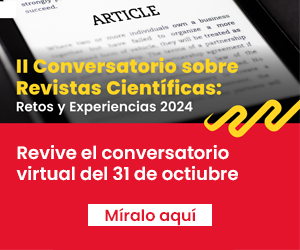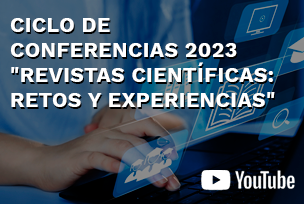Stress factors in mothers with school-age children in a pandemic situation
DOI:
https://doi.org/10.20453/renh.v17i.2024.5403Keywords:
predisposing factors, stress, mothers, population characteristics, coronavirus 2019-nCoVAbstract
Objective: To determine the stress factors in mothers with school-age children during the pandemic. Materials and methods: Research with a quantitative approach, descriptive scope and cross-sectional design. A total of 124 mothers participated, to whom the adapted and validated Stress Factors in Mothers (FEMAF, for its Spanish acronym) questionnaire was administered with prior informed consent. The data were analyzed with the statistical program STATA version 17. Descriptive analysis was used, applying the distribution of frequencies and percentages. Results: A total of 87.1 % showed lack of support at home in the performance of household chores; 86.3 % reported low family budget to cover expenses for food, studies, house payments or rent, among others; 75.8 % reported the increase in the number of COVID-19 infections in their community as a stress factor; 74.2 % reported long working hours in the development of their work activities; 45.2 % showed family conflicts (fights or arguments) with their partner, children and other family members. Conclusions: The stress factors in mothers with school-age children during the pandemic were poor support in carrying out household chores, low family budget to cover expenses, long working hours in the development of their work activities, the increase in the number of COVID-19 infections in their community, and family conflicts.
Downloads
References
Gutiérrez ZD, Gallard IE. El cuidado humano y el aporte de las teorías de enfermería a la práctica enfermera. Conecta Libertad [Internet]. 2020; 4(2): 127-135. Disponible en: https://revistaitsl.itslibertad.edu.ec/index.php/ITSL/article/view/110/354
Ley n.° 31317, Ley que incorpora al profesional de enfermería en la comunidad educativa a fin de contribuir en la prevención de enfermedades y promoción de la salud en la educación básica [Internet]. Lima: Congreso de la República (PE); 2021, 26 de julio. Disponible en: https://busquedas.elperuano.pe/dispositivo/NL/1976876-2
Organización Mundial de la Salud. Salud mental: fortalecer nuestra respuesta [Internet]. OMS; 2022, 17 de junio. Disponible en: https://www.who.int/es/news-room/fact-sheets/detail/mental-health-strengthening-our-response
Capdevila N, Segundo MJ. Estrés: causas, tipos y estrategias nutricionales. OFFARM [Internet]. 2005; 24(8): 96-104. Disponible en: https://www.studocu.com/es-mx/document/escuela-libre-de-psicologia/psicologia/estres-causas-tipos-y-estrategias-nutricionales/13511556
Mojica-Crespo R, Morales-Crespo MM. Pandemia COVID-19, la nueva emergencia sanitaria de preocupación internacional: una revisión. SEMERGEN [Internet]. 2020; 46(Suppl 1): 65-77. Disponible en: https://doi.org/10.1016/j.semerg.2020.05.010
Organización Mundial de la Salud. Actualización de la estrategia frente a la COVID-19 [Internet]. Ginebra: OMS; 2020. Disponible en: https://www.who.int/docs/default-source/coronaviruse/covid-strategy-update-14april2020_es.pdf?sfvrsn=86c0929d_10%0A
Qui J, Shen B, Zhao M, Wang Z, Xie B, Xu Y. A nationwide survey of psychological distress among Chinese people in the COVID-19 epidemic: implications and policy recommendations. Gen Psychiatr [Internet]. 2020; 33(2): e100213. Disponible en: https://doi.org/10.1136/gpsych-2020-100213
United Nations. Policy Brief: COVID-19 and the Need for Action on Mental Health [Internet]. UN; 2020. Disponible en: https://www.un.org/sites/un2.un.org/files/un_policy_brief-covid_and_mental_health_final.pdf
Datum Internacional. Salud mental en tiempos de pandemia [Internet]. Lima: Datum; 2020. Disponible en: https://www.datum.com.pe/new_web_files/files/pdf/Salud%20mental%20en%20tiempos%20de%20pandemia_201218092143.pdf
Garcés-Prettel M, Santoya-Montes Y, Vázquez-Miraz P, Geney-Castro E. Influencia de la comunicación familiar en el estrés percibido durante la pandemia de COVID-19. Salud Uninorte [Internet]. 2021; 37(3): 569-582. Disponible en: https://dx.doi.org/10.14482/sun.37.3.616.981
Saavedra JE, Aliaga K, Castillo WH, Huamán J, Luna Y, Nicolás Y, et al. Estudio epidemiológico sobre el impacto de la pandemia COVID-19 en la salud mental de la población de Lima Metropolitana. Diagnóstico [Internet]. 2022; 61(3): e374. Disponible en: https://doi.org/10.33734/diagnostico.v61i3.374
Marriner A, Raile M. Modelos y teorías en enfermería. 7.a ed. Madrid: Elsevier; 2011.
Breilh J. Trabajo hospitalario, estrés y sufrimiento mental. Deterioro de la salud de los internos en Quito, Ecuador [Internet]. UASB-Digital; 1992. Disponible en: http://hdl.handle.net/10644/3379
Wheaton B, Montazer S. Stressors, stress, and distress [Internet]. En: Scheid TL, Brown TN, editores. A Handbook for the Study of Mental Health. Social Contexts, Theories, and Systems. Cambridge: Cambridge University Press; 2012. pp. 171-199. Disponible en: https://doi.org/10.1017/CBO9780511984945.013
Lóyzaga OF, Curiel VA. El trabajo doméstico. Análisis crítico. Alegatos [Internet]. 2014; (87): 351-382. Disponible en: https://www.corteidh.or.cr/tablas/r33516.pdf
Caccia PA, Simaes AC, Mancini NA, Gómez FN, Schetsche C, Pedrón V, et al. Estrés de pandemia por COVID-19 y el conflicto trabajo-familia y familia-trabajo en Buenos Aires, Argentina. Interdisciplinaria [Internet]. 2023; 40(2): 445-460. Disponible en: https://doi.org/10.16888/interd.2023.40.2.26
Gordon SF. Mujeres, trabajo doméstico y covid-19: explorando el incremento en la desigualdad de género causada por la COVID-19. Psicología Iberoamericana [Internet]. 2021; 29(1). Disponible en: https://doi.org/10.48102/pi.v29i1.399
Defensoría del Pueblo (PE). Sobrecarga de labores en las mujeres durante la cuarentena por la emergencia sanitaria. Lima: Defensoría del Pueblo; 2020. Disponible en: https://www.defensoria.gob.pe/wp-content/uploads/2020/07/Documento-de-trabajo-N-002-2020-DPADM-Sobrecarga-de-labores-en-las-mujeres-durante-la-cuarentena-por-la-emergencia-sanitaria.pdf
Maeda JK. La fuerza laboral de las mujeres al límite. Consecuencias del COVID-19 en las trabajadoras urbanas del Perú [Internet]. Lima: IDEHPUCP; 2020, 14 de octubre. Disponible en: https://idehpucp.pucp.edu.pe/revista-memoria/articulo/la-fuerza-laboral-de-las-mujeres-al-limite-consecuencias-del-covid-19-en-las-trabajadoras-urbanas-del-peru/
Okoro CA, Strine TW, McKnight-Eily L, Verlenden J, Hollis ND. Indicators of poor mental health and stressors during the COVID-19 pandemic, by disability status: a cross-sectional analysis. Disabil Health J [Internet]. 2021; 14(4): 101110. Disponible en: https://doi.org/10.1016/j.dhjo.2021.101110
Jenkins EK, McAuliffe C, Hirani S, Richardson C, Thomson KC, McGuinness L, et al. A portrait of the early and differential mental health impacts of the COVID-19 pandemic in Canada: Findings from the first wave of a nationally representative cross-sectional survey. Prev Med [Internet]. 2021; 145: 106333. Disponible en: https://doi.org/10.1016/j.ypmed.2020.106333
Purvis RS, Ayers BL, Rowland B, Moore R, Hallgren E, McElfish P. “Life is hard”: How the COVID-19 pandemic affected daily stressors of women. Dialogues in Health [Internet]. 2022; 1: 100018. Disponible en: https://doi.org/10.1016/j.dialog.2022.100018
Rodríguez-Quiroga A, Buiza C, Álvarez de Mon MA, Quintero J. COVID-19 y salud mental. Medicine [Internet]. 2020; 13(23): 1285-1296. Disponible en: https://doi.org/10.1016/j.med.2020.12.010
León-Rodríguez DA, Bautista LR, Gómez CA, Rincón GA, Neme WO. Percepción de la afectación atribuida a la pandemia por COVID-19 en padres y madres de Colombia. Rev Latinoam Estud Fam [Internet]. 2022; 14(1): 29-50. Disponible en: https://doi.org/10.17151/rlef.2022.14.1.3
Segura RM. El efecto de los factores estresantes en las mujeres. Alternativas Psicol [Internet]. 2015; 18(núm. especial): 35-47. Disponible en: https://alternativas.me/attachments/article/89/3%20-%20El%20efecto%20de%20los%20factores%20estresantes%20en%20las%20mujeres.pdf
Naranjo MJ, Morales IA, Ron RE. Efectos de la pandemia en la familia y en la sociedad ecuatoriana. Res Non Verba [Internet]. 2020; 10(2): 115-135. Disponible en: https://revistas.ecotec.edu.ec/index.php/rnv/article/view/417/281
Downloads
Published
How to Cite
Issue
Section
License
Copyright (c) 2024 Leslie Lizbhet Castañeda Carrasco, Heydi Nicoll Rojas Bardales, Julia Raquel Meléndez De la Cruz

This work is licensed under a Creative Commons Attribution 4.0 International License.
All articles published in the Revista Enfermeria Herediana are under a Creative Commons Reconocimiento 4.0 International license.
The authors retain the copyright and grant the journal the right of first publication, with the work registered with the Creative Commons License, which allows third parties to use what is published whenever they mention the authorship of the work, and to the first publication in this magazine.
Authors can make other independent and additional contractual agreements for the non-exclusive distribution of the version published in this journal, provided they clearly indicate that the work was published in this journal.
The authors can file in the repository of their institution:
The research work or thesis of degree from which the published article derives.
The pre-print version: the version prior to peer review.
The Post-print version: final version after peer review.
The definitive version or final version created by the publisher for publication.









2.png)








